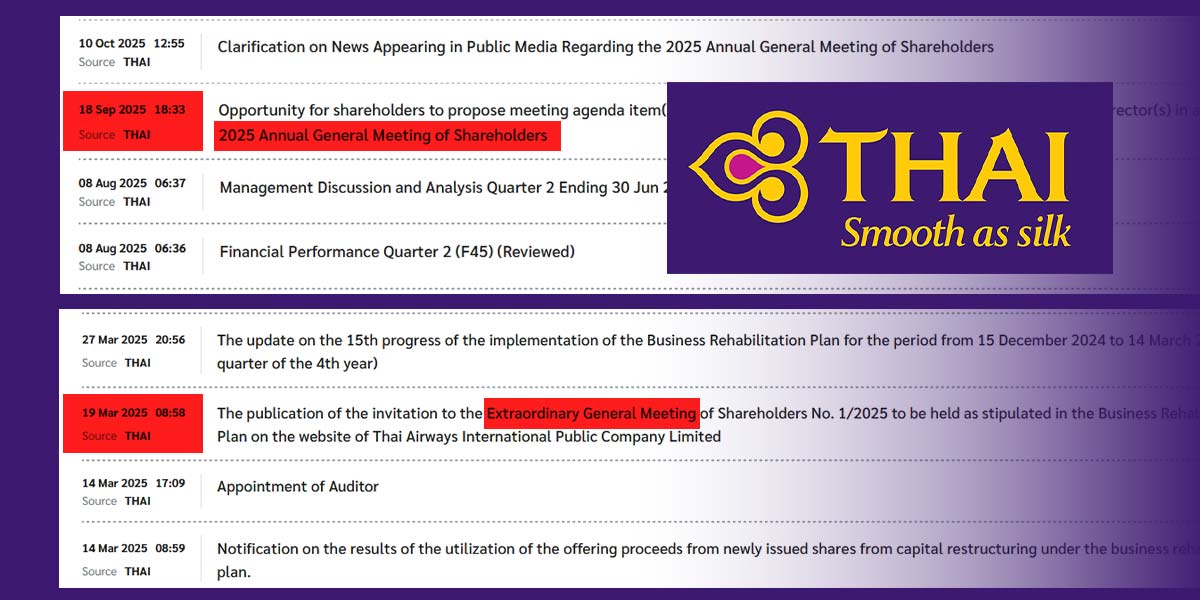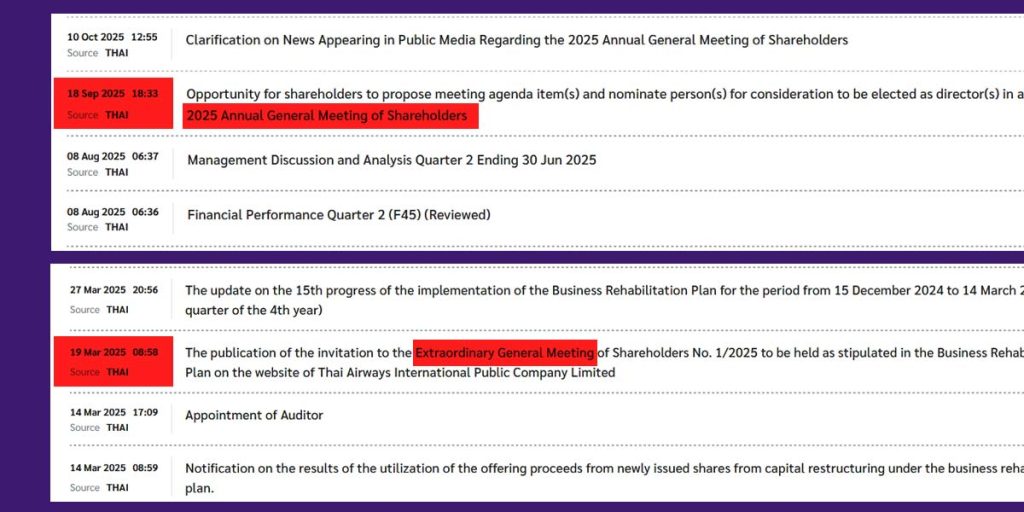Thai Airways International Public Company Limited (SET: THAI) has suffered a significant setback after a widespread misunderstanding regarding its shareholder meetings triggered a dramatic drop in its share price, which plunged more than 20% in just one week.
Many market participants mistakenly believed that Thai Airways had breached convention by convening a second Annual General Meeting (AGM) within the same calendar year. This confusion raised concerns among investors, especially on the reshuffle of the Boards, which in turn resulted in a sharp sell-off of THAI shares.
However, official filings from Thai Airways clarify that the meeting in question was not an additional AGM but instead an Extraordinary General Meeting of Shareholders No. 1/2025, held in strict adherence to the company’s Business Rehabilitation Plan. According to a disclosure published on the Stock Exchange of Thailand’s website on 19 March 2025, the meeting was scheduled for 18 April 2025 as required by the rehabilitation process. The company subsequently reported the meeting’s resolutions via a follow-up disclosure on the same day.
Last week, Thai Airways disclosed new information concerning its upcoming Annual General Meeting (AGM) and the process for board member replacements, underscoring the company’s efforts to ensure good governance practices and protection of shareholder rights.
As Thai Airways prepares for the AGM, it has been reported that board elections will be held to replace four directors—three whose terms are expiring and one additional seat to be selected by ballot, in line with requirements set by the Stock Exchange of Thailand (SET). The directors whose terms are concluding include Mr. Piyasvasti Amranand, Mr. Chansin Treenuchagron, and Air Chief Marshal Amnart Jeeramaneemaim who have been playing an important part in the success of THAI’s rehabilitation plan.
Prior to the airline’s formal announcement, market reports indicated that the Ministry of Finance, exercising its shareholder rights, nominated a slate of ten candidates to be considered for these board positions. The move comes as part of preparations to replace four outgoing directors among the current eleven-member board. The additional board seat requiring replacement by ballot follows SET regulations, which mandate periodic board renewal by requiring one-third rotation of the present directorship.
Furthermore, a recent report indicates that board discussions have included proposals to expand the number of directors from 11 to a maximum of 15, restoring board capacity to levels seen during the company’s business rehabilitation period. However, this potential expansion has fueled debate, with some highlighting operational challenges associated with a larger board, citing experiences both within Thai Airways and compared to the smaller boards typically seen at international airlines, where directorships typically have a number of 10 or fewer.
Thai Airways has affirmed that its director nomination and selection process complies with the Public Limited Companies Act, the Securities and Exchange Act, and the airline’s own Articles of Association. The company emphasized that full shareholder rights are being upheld and that all procedures leading up to the 2025 AGM, which has yet to convene, remain transparent and in strict accordance with legal and regulatory standards.
This clarification highlights the importance of accurately distinguishing between routine AGMs and special meetings convened under specific legal frameworks. A clearer understanding of these corporate governance details could help reassure investors and potentially restore confidence in the company’s recovery trajectory.






